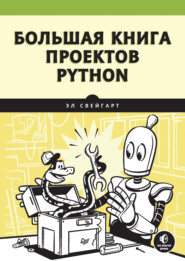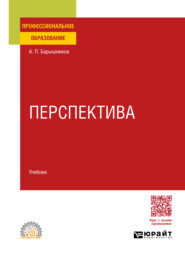 ТекстПолная версия
ТекстПолная версия The French Revolution: A History
Полная версия
- О книге
- Читать
But with a Fortunatus' Purse in his pocket, through what length of time might not almost any Falsehood last! Your Society, your Household, practical or spiritual Arrangement, is untrue, unjust, offensive to the eye of God and man. Nevertheless its hearth is warm, its larder well replenished: the innumerable Swiss of Heaven, with a kind of Natural loyalty, gather round it; will prove, by pamphleteering, musketeering, that it is a truth; or if not an unmixed (unearthly, impossible) Truth, then better, a wholesomely attempered one, (as wind is to the shorn lamb), and works well. Changed outlook, however, when purse and larder grow empty! Was your Arrangement so true, so accordant to Nature's ways, then how, in the name of wonder, has Nature, with her infinite bounty, come to leave it famishing there? To all men, to all women and all children, it is now indutiable that your Arrangement was false. Honour to Bankruptcy; ever righteous on the great scale, though in detail it is so cruel! Under all Falsehoods it works, unweariedly mining. No Falsehood, did it rise heaven-high and cover the world, but Bankruptcy, one day, will sweep it down, and make us free of it.
Chapter 1.3.II
Controller Calonne
Under such circumstances of tristesse, obstruction and sick langour, when to an exasperated Court it seems as if fiscal genius had departed from among men, what apparition could be welcomer than that of M. de Calonne? Calonne, a man of indisputable genius; even fiscal genius, more or less; of experience both in managing Finance and Parlements, for he has been Intendant at Metz, at Lille; King's Procureur at Douai. A man of weight, connected with the moneyed classes; of unstained name,—if it were not some peccadillo (of showing a Client's Letter) in that old D'Aiguillon-Lachalotais business, as good as forgotten now. He has kinsmen of heavy purse, felt on the Stock Exchange. Our Foulons, Berthiers intrigue for him:—old Foulon, who has now nothing to do but intrigue; who is known and even seen to be what they call a scoundrel; but of unmeasured wealth; who, from Commissariat-clerk which he once was, may hope, some think, if the game go right, to be Minister himself one day.
Such propping and backing has M. de Calonne; and then intrinsically such qualities! Hope radiates from his face; persuasion hangs on his tongue. For all straits he has present remedy, and will make the world roll on wheels before him. On the 3d of November 1783, the Oeil-de-Boeuf rejoices in its new Controller-General. Calonne also shall have trial; Calonne also, in his way, as Turgot and Necker had done in theirs, shall forward the consummation; suffuse, with one other flush of brilliancy, our now too leaden-coloured Era of Hope, and wind it up—into fulfilment.
Great, in any case, is the felicity of the Oeil-de-Boeuf. Stinginess has fled from these royal abodes: suppression ceases; your Besenval may go peaceably to sleep, sure that he shall awake unplundered. Smiling Plenty, as if conjured by some enchanter, has returned; scatters contentment from her new-flowing horn. And mark what suavity of manners! A bland smile distinguishes our Controller: to all men he listens with an air of interest, nay of anticipation; makes their own wish clear to themselves, and grants it; or at least, grants conditional promise of it. "I fear this is a matter of difficulty," said her Majesty.—"Madame," answered the Controller, "if it is but difficult, it is done, if it is impossible, it shall be done (se fera)." A man of such 'facility' withal. To observe him in the pleasure-vortex of society, which none partakes of with more gusto, you might ask, When does he work? And yet his work, as we see, is never behindhand; above all, the fruit of his work: ready-money. Truly a man of incredible facility; facile action, facile elocution, facile thought: how, in mild suasion, philosophic depth sparkles up from him, as mere wit and lambent sprightliness; and in her Majesty's Soirees, with the weight of a world lying on him, he is the delight of men and women! By what magic does he accomplish miracles? By the only true magic, that of genius. Men name him 'the Minister;' as indeed, when was there another such? Crooked things are become straight by him, rough places plain; and over the Oeil-de-Boeuf there rests an unspeakable sunshine.
Nay, in seriousness, let no man say that Calonne had not genius: genius for Persuading; before all things, for Borrowing. With the skilfulest judicious appliances of underhand money, he keeps the Stock-Exchanges flourishing; so that Loan after Loan is filled up as soon as opened. 'Calculators likely to know' (Besenval, iii. 216.) have calculated that he spent, in extraordinaries, 'at the rate of one million daily;' which indeed is some fifty thousand pounds sterling: but did he not procure something with it; namely peace and prosperity, for the time being? Philosophedom grumbles and croaks; buys, as we said, 80,000 copies of Necker's new Book: but Nonpareil Calonne, in her Majesty's Apartment, with the glittering retinue of Dukes, Duchesses, and mere happy admiring faces, can let Necker and Philosophedom croak.
The misery is, such a time cannot last! Squandering, and Payment by Loan is no way to choke a Deficit. Neither is oil the substance for quenching conflagrations;—but, only for assuaging them, not permanently! To the Nonpareil himself, who wanted not insight, it is clear at intervals, and dimly certain at all times, that his trade is by nature temporary, growing daily more difficult; that changes incalculable lie at no great distance. Apart from financial Deficit, the world is wholly in such a new-fangled humour; all things working loose from their old fastenings, towards new issues and combinations. There is not a dwarf jokei, a cropt Brutus'-head, or Anglomaniac horseman rising on his stirrups, that does not betoken change. But what then? The day, in any case, passes pleasantly; for the morrow, if the morrow come, there shall be counsel too. Once mounted (by munificence, suasion, magic of genius) high enough in favour with the Oeil-de-Boeuf, with the King, Queen, Stock-Exchange, and so far as possible with all men, a Nonpareil Controller may hope to go careering through the Inevitable, in some unimagined way, as handsomely as another.
At all events, for these three miraculous years, it has been expedient heaped on expedient; till now, with such cumulation and height, the pile topples perilous. And here has this world's-wonder of a Diamond Necklace brought it at last to the clear verge of tumbling. Genius in that direction can no more: mounted high enough, or not mounted, we must fare forth. Hardly is poor Rohan, the Necklace-Cardinal, safely bestowed in the Auvergne Mountains, Dame de Lamotte (unsafely) in the Salpetriere, and that mournful business hushed up, when our sanguine Controller once more astonishes the world. An expedient, unheard of for these hundred and sixty years, has been propounded; and, by dint of suasion (for his light audacity, his hope and eloquence are matchless) has been got adopted,—Convocation of the Notables.
Let notable persons, the actual or virtual rulers of their districts, be summoned from all sides of France: let a true tale, of his Majesty's patriotic purposes and wretched pecuniary impossibilities, be suasively told them; and then the question put: What are we to do? Surely to adopt healing measures; such as the magic of genius will unfold; such as, once sanctioned by Notables, all Parlements and all men must, with more or less reluctance, submit to.
Chapter 1.3.III
The Notables
Here, then is verily a sign and wonder; visible to the whole world; bodeful of much. The Oeil-de-Boeuf dolorously grumbles; were we not well as we stood,—quenching conflagrations by oil? Constitutional Philosophedom starts with joyful surprise; stares eagerly what the result will be. The public creditor, the public debtor, the whole thinking and thoughtless public have their several surprises, joyful and sorrowful. Count Mirabeau, who has got his matrimonial and other Lawsuits huddled up, better or worse; and works now in the dimmest element at Berlin; compiling Prussian Monarchies, Pamphlets On Cagliostro; writing, with pay, but not with honourable recognition, innumerable Despatches for his Government,—scents or descries richer quarry from afar. He, like an eagle or vulture, or mixture of both, preens his wings for flight homewards. (Fils Adoptif, Memoires de Mirabeau, t. iv. livv. 4 et 5.)
M. de Calonne has stretched out an Aaron's Rod over France; miraculous; and is summoning quite unexpected things. Audacity and hope alternate in him with misgivings; though the sanguine-valiant side carries it. Anon he writes to an intimate friend, "Here me fais pitie a moi-meme (I am an object of pity to myself);" anon, invites some dedicating Poet or Poetaster to sing 'this Assembly of the Notables and the Revolution that is preparing.' (Biographie Universelle, para Calonne (by Guizot).) Preparing indeed; and a matter to be sung,—only not till we have seen it, and what the issue of it is. In deep obscure unrest, all things have so long gone rocking and swaying: will M. de Calonne, with this his alchemy of the Notables, fasten all together again, and get new revenues? Or wrench all asunder; so that it go no longer rocking and swaying, but clashing and colliding?
Be this as it may, in the bleak short days, we behold men of weight and influence threading the great vortex of French Locomotion, each on his several line, from all sides of France towards the Chateau of Versailles: summoned thither de par le roi. There, on the 22d day of February 1787, they have met, and got installed: Notables to the number of a Hundred and Thirty-seven, as we count them name by name: (Lacretelle, iii. 286. Montgaillard, i. 347.) add Seven Princes of the Blood, it makes the round Gross of Notables. Men of the sword, men of the robe; Peers, dignified Clergy, Parlementary Presidents: divided into Seven Boards (Bureaux); under our Seven Princes of the Blood, Monsieur, D'Artois, Penthievre, and the rest; among whom let not our new Duke d'Orleans (for, since 1785, he is Chartres no longer) be forgotten. Never yet made Admiral, and now turning the corner of his fortieth year, with spoiled blood and prospects; half-weary of a world which is more than half-weary of him, Monseigneur's future is most questionable. Not in illumination and insight, not even in conflagration; but, as was said, 'in dull smoke and ashes of outburnt sensualities,' does he live and digest. Sumptuosity and sordidness; revenge, life-weariness, ambition, darkness, putrescence; and, say, in sterling money, three hundred thousand a year,—were this poor Prince once to burst loose from his Court-moorings, to what regions, with what phenomena, might he not sail and drift! Happily as yet he 'affects to hunt daily;' sits there, since he must sit, presiding that Bureau of his, with dull moon-visage, dull glassy eyes, as if it were a mere tedium to him.
We observe finally, that Count Mirabeau has actually arrived. He descends from Berlin, on the scene of action; glares into it with flashing sun-glance; discerns that it will do nothing for him. He had hoped these Notables might need a Secretary. They do need one; but have fixed on Dupont de Nemours; a man of smaller fame, but then of better;—who indeed, as his friends often hear, labours under this complaint, surely not a universal one, of having 'five kings to correspond with.' (Dumont, Souvenirs sur Mirabeau (Paris, 1832), p. 20.) The pen of a Mirabeau cannot become an official one; nevertheless it remains a pen. In defect of Secretaryship, he sets to denouncing Stock-brokerage (Denonciation de l'Agiotage); testifying, as his wont is, by loud bruit, that he is present and busy;—till, warned by friend Talleyrand, and even by Calonne himself underhand, that 'a seventeenth Lettre-de-Cachet may be launched against him,' he timefully flits over the marches.
And now, in stately royal apartments, as Pictures of that time still represent them, our hundred and forty-four Notables sit organised; ready to hear and consider. Controller Calonne is dreadfully behindhand with his speeches, his preparatives; however, the man's 'facility of work' is known to us. For freshness of style, lucidity, ingenuity, largeness of view, that opening Harangue of his was unsurpassable:—had not the subject-matter been so appalling. A Deficit, concerning which accounts vary, and the Controller's own account is not unquestioned; but which all accounts agree in representing as 'enormous.' This is the epitome of our Controller's difficulties: and then his means? Mere Turgotism; for thither, it seems, we must come at last: Provincial Assemblies; new Taxation; nay, strangest of all, new Land-tax, what he calls Subvention Territoriale, from which neither Privileged nor Unprivileged, Noblemen, Clergy, nor Parlementeers, shall be exempt!
Foolish enough! These Privileged Classes have been used to tax; levying toll, tribute and custom, at all hands, while a penny was left: but to be themselves taxed? Of such Privileged persons, meanwhile, do these Notables, all but the merest fraction, consist. Headlong Calonne had given no heed to the 'composition,' or judicious packing of them; but chosen such Notables as were really notable; trusting for the issue to off-hand ingenuity, good fortune, and eloquence that never yet failed. Headlong Controller-General! Eloquence can do much, but not all. Orpheus, with eloquence grown rhythmic, musical (what we call Poetry), drew iron tears from the cheek of Pluto: but by what witchery of rhyme or prose wilt thou from the pocket of Plutus draw gold?
Accordingly, the storm that now rose and began to whistle round Calonne, first in these Seven Bureaus, and then on the outside of them, awakened by them, spreading wider and wider over all France, threatens to become unappeasable. A Deficit so enormous! Mismanagement, profusion is too clear. Peculation itself is hinted at; nay, Lafayette and others go so far as to speak it out, with attempts at proof. The blame of his Deficit our brave Calonne, as was natural, had endeavoured to shift from himself on his predecessors; not excepting even Necker. But now Necker vehemently denies; whereupon an 'angry Correspondence,' which also finds its way into print.
In the Oeil-de-Boeuf, and her Majesty's private Apartments, an eloquent Controller, with his "Madame, if it is but difficult," had been persuasive: but, alas, the cause is now carried elsewhither. Behold him, one of these sad days, in Monsieur's Bureau; to which all the other Bureaus have sent deputies. He is standing at bay: alone; exposed to an incessant fire of questions, interpellations, objurgations, from those 'hundred and thirty-seven' pieces of logic-ordnance,—what we may well call bouches a feu, fire-mouths literally! Never, according to Besenval, or hardly ever, had such display of intellect, dexterity, coolness, suasive eloquence, been made by man. To the raging play of so many fire-mouths he opposes nothing angrier than light-beams, self-possession and fatherly smiles. With the imperturbablest bland clearness, he, for five hours long, keeps answering the incessant volley of fiery captious questions, reproachful interpellations; in words prompt as lightning, quiet as light. Nay, the cross-fire too: such side questions and incidental interpellations as, in the heat of the main-battle, he (having only one tongue) could not get answered; these also he takes up at the first slake; answers even these. (Besenval, iii. 196.) Could blandest suasive eloquence have saved France, she were saved.
Heavy-laden Controller! In the Seven Bureaus seems nothing but hindrance: in Monsieur's Bureau, a Lomenie de Brienne, Archbishop of Toulouse, with an eye himself to the Controllership, stirs up the Clergy; there are meetings, underground intrigues. Neither from without anywhere comes sign of help or hope. For the Nation (where Mirabeau is now, with stentor-lungs, 'denouncing Agio') the Controller has hitherto done nothing, or less. For Philosophedom he has done as good as nothing,—sent out some scientific Laperouse, or the like: and is he not in 'angry correspondence' with its Necker? The very Oeil-de-Boeuf looks questionable; a falling Controller has no friends. Solid M. de Vergennes, who with his phlegmatic judicious punctuality might have kept down many things, died the very week before these sorrowful Notables met. And now a Seal-keeper, Garde-des-Sceaux Miromenil is thought to be playing the traitor: spinning plots for Lomenie-Brienne! Queen's-Reader Abbe de Vermond, unloved individual, was Brienne's creature, the work of his hands from the first: it may be feared the backstairs passage is open, ground getting mined under our feet. Treacherous Garde-des-Sceaux Miromenil, at least, should be dismissed; Lamoignon, the eloquent Notable, a stanch man, with connections, and even ideas, Parlement-President yet intent on reforming Parlements, were not he the right Keeper? So, for one, thinks busy Besenval; and, at dinner-table, rounds the same into the Controller's ear,—who always, in the intervals of landlord-duties, listens to him as with charmed look, but answers nothing positive. (Besenval, iii. 203.)
Alas, what to answer? The force of private intrigue, and then also the force of public opinion, grows so dangerous, confused! Philosophedom sneers aloud, as if its Necker already triumphed. The gaping populace gapes over Wood-cuts or Copper-cuts; where, for example, a Rustic is represented convoking the poultry of his barnyard, with this opening address: "Dear animals, I have assembled you to advise me what sauce I shall dress you with;" to which a Cock responding, "We don't want to be eaten," is checked by "You wander from the point (Vous vous ecartez de la question)." (Republished in the Musee de la Caricature (Paris, 1834).) Laughter and logic; ballad-singer, pamphleteer; epigram and caricature: what wind of public opinion is this,—as if the Cave of the Winds were bursting loose! At nightfall, President Lamoignon steals over to the Controller's; finds him 'walking with large strides in his chamber, like one out of himself.' (Besenval, iii. 209.) With rapid confused speech the Controller begs M. de Lamoignon to give him 'an advice.' Lamoignon candidly answers that, except in regard to his own anticipated Keepership, unless that would prove remedial, he really cannot take upon him to advise.
'On the Monday after Easter,' the 9th of April 1787, a date one rejoices to verify, for nothing can excel the indolent falsehood of these Histoires and Memoires,—'On the Monday after Easter, as I, Besenval, was riding towards Romainville to the Marechal de Segur's, I met a friend on the Boulevards, who told me that M. de Calonne was out. A little further on came M. the Duke d'Orleans, dashing towards me, head to the wind' (trotting a l'Anglaise), 'and confirmed the news.' (Ib. iii. 211.) It is true news. Treacherous Garde-des-Sceaux Miromenil is gone, and Lamoignon is appointed in his room: but appointed for his own profit only, not for the Controller's: 'next day' the Controller also has had to move. A little longer he may linger near; be seen among the money changers, and even 'working in the Controller's office,' where much lies unfinished: but neither will that hold. Too strong blows and beats this tempest of public opinion, of private intrigue, as from the Cave of all the Winds; and blows him (higher Authority giving sign) out of Paris and France,—over the horizon, into Invisibility, or uuter (utter, outer?) Darkness.
Such destiny the magic of genius could not forever avert. Ungrateful Oeil-de-Boeuf! did he not miraculously rain gold manna on you; so that, as a Courtier said, "All the world held out its hand, and I held out my hat,"—for a time? Himself is poor; penniless, had not a 'Financier's widow in Lorraine' offered him, though he was turned of fifty, her hand and the rich purse it held. Dim henceforth shall be his activity, though unwearied: Letters to the King, Appeals, Prognostications; Pamphlets (from London), written with the old suasive facility; which however do not persuade. Luckily his widow's purse fails not. Once, in a year or two, some shadow of him shall be seen hovering on the Northern Border, seeking election as National Deputy; but be sternly beckoned away. Dimmer then, far-borne over utmost European lands, in uncertain twilight of diplomacy, he shall hover, intriguing for 'Exiled Princes,' and have adventures; be overset into the Rhine stream and half-drowned, nevertheless save his papers dry. Unwearied, but in vain! In France he works miracles no more; shall hardly return thither to find a grave. Farewell, thou facile sanguine Controller-General, with thy light rash hand, thy suasive mouth of gold: worse men there have been, and better; but to thee also was allotted a task,—of raising the wind, and the winds; and thou hast done it.
But now, while Ex-Controller Calonne flies storm-driven over the horizon, in this singular way, what has become of the Controllership? It hangs vacant, one may say; extinct, like the Moon in her vacant interlunar cave. Two preliminary shadows, poor M. Fourqueux, poor M. Villedeuil, do hold in quick succession some simulacrum of it, (Besenval, iii. 225.)—as the new Moon will sometimes shine out with a dim preliminary old one in her arms. Be patient, ye Notables! An actual new Controller is certain, and even ready; were the indispensable manoeuvres but gone through. Long-headed Lamoignon, with Home Secretary Breteuil, and Foreign Secretary Montmorin have exchanged looks; let these three once meet and speak. Who is it that is strong in the Queen's favour, and the Abbe de Vermond's? That is a man of great capacity? Or at least that has struggled, these fifty years, to have it thought great; now, in the Clergy's name, demanding to have Protestant death-penalties 'put in execution;' no flaunting it in the Oeil-de-Boeuf, as the gayest man-pleaser and woman-pleaser; gleaning even a good word from Philosophedom and your Voltaires and D'Alemberts? With a party ready-made for him in the Notables?—Lomenie de Brienne, Archbishop of Toulouse! answer all the three, with the clearest instantaneous concord; and rush off to propose him to the King; 'in such haste,' says Besenval, 'that M. de Lamoignon had to borrow a simarre,' seemingly some kind of cloth apparatus necessary for that. (Ib. iii. 224.)
Lomenie-Brienne, who had all his life 'felt a kind of predestination for the highest offices,' has now therefore obtained them. He presides over the Finances; he shall have the title of Prime Minister itself, and the effort of his long life be realised. Unhappy only that it took such talent and industry to gain the place; that to qualify for it hardly any talent or industry was left disposable! Looking now into his inner man, what qualification he may have, Lomenie beholds, not without astonishment, next to nothing but vacuity and possibility. Principles or methods, acquirement outward or inward (for his very body is wasted, by hard tear and wear) he finds none; not so much as a plan, even an unwise one. Lucky, in these circumstances, that Calonne has had a plan! Calonne's plan was gathered from Turgot's and Necker's by compilation; shall become Lomenie's by adoption. Not in vain has Lomenie studied the working of the British Constitution; for he professes to have some Anglomania, of a sort. Why, in that free country, does one Minister, driven out by Parliament, vanish from his King's presence, and another enter, borne in by Parliament? (Montgaillard, Histoire de France, i. 410-17.) Surely not for mere change (which is ever wasteful); but that all men may have share of what is going; and so the strife of Freedom indefinitely prolong itself, and no harm be done.
The Notables, mollified by Easter festivities, by the sacrifice of Calonne, are not in the worst humour. Already his Majesty, while the 'interlunar shadows' were in office, had held session of Notables; and from his throne delivered promissory conciliatory eloquence: 'The Queen stood waiting at a window, till his carriage came back; and Monsieur from afar clapped hands to her,' in sign that all was well. (Besenval, iii. 220.) It has had the best effect; if such do but last. Leading Notables meanwhile can be 'caressed;' Brienne's new gloss, Lamoignon's long head will profit somewhat; conciliatory eloquence shall not be wanting. On the whole, however, is it not undeniable that this of ousting Calonne and adopting the plans of Calonne, is a measure which, to produce its best effect, should be looked at from a certain distance, cursorily; not dwelt on with minute near scrutiny. In a word, that no service the Notables could now do were so obliging as, in some handsome manner, to—take themselves away! Their 'Six Propositions' about Provisional Assemblies, suppression of Corvees and suchlike, can be accepted without criticism. The Subvention on Land-tax, and much else, one must glide hastily over; safe nowhere but in flourishes of conciliatory eloquence. Till at length, on this 25th of May, year 1787, in solemn final session, there bursts forth what we can call an explosion of eloquence; King, Lomenie, Lamoignon and retinue taking up the successive strain; in harrangues to the number of ten, besides his Majesty's, which last the livelong day;—whereby, as in a kind of choral anthem, or bravura peal, of thanks, praises, promises, the Notables are, so to speak, organed out, and dismissed to their respective places of abode. They had sat, and talked, some nine weeks: they were the first Notables since Richelieu's, in the year 1626.
























